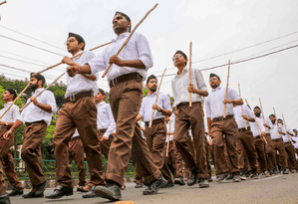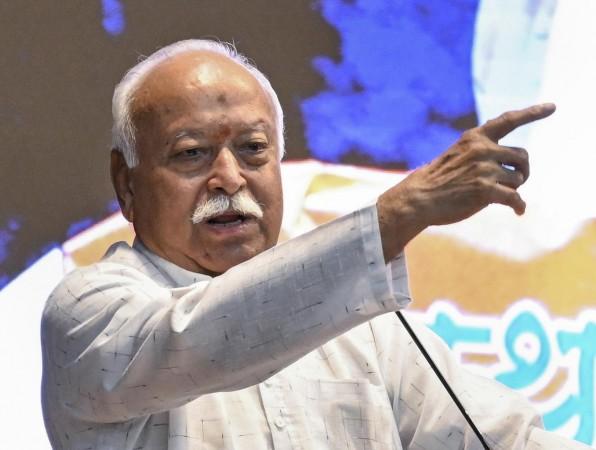
As the Rashtriya Swayamsevak Sangh (RSS) approaches its 100th anniversary, the organization is not only broadening its reach but also addressing the ongoing discourse surrounding the "75-year retirement age." This topic has gained prominence, especially as Prime Minister Narendra Modi reaches this age milestone. Senior RSS sources have clarified that the Sangh does not adhere to a formal retirement age of 75, emphasizing that "every organization should function on its own terms." This statement follows RSS chief Mohan Bhagwat's remarks suggesting that leaders should recognize when it is time to step aside, comments that the Opposition has used to critique PM Modi.
The RSS is making significant strides in its organizational growth, with a target of establishing "one lakh shakhas by October" across the nation, including "2,018 shakhas in Bengal." West Bengal, in particular, is a focal point for the RSS, though it presents challenges due to ongoing political violence. A senior RSS functionary noted, "Political violence happens due to patronage. Why violence happens in Bengal, people should think," while accusing the Mamata Banerjee government of obstructing Bhagwat's public programs. The organization had to seek judicial intervention to secure approval for his gatherings.
The RSS has also highlighted what it perceives as a "Rajdharma deficit in Bengal," underscoring the importance of ensuring that "the Central and state governments are not enemies, but people's right to live freely must be ensured." This sentiment reflects the RSS's broader concerns about governance and civil liberties in the region.

RSS's National and International Stance
In addition to its domestic focus, the RSS has raised issues of national interest, advocating for a "population policy for all Indians" rather than mere population control. The organization is also calling for an amendment to Article 30, which pertains to minority institutions, and supports the idea that while there can be a single link language, there should be multiple national languages. This approach underscores the RSS's commitment to cultural diversity within a unified national framework.
On the international front, RSS insiders have reiterated that "The Sangh never says India should be enemies with China always. We must have relations with all, but a nation's supremacy is paramount." This statement reflects the RSS's nuanced approach to foreign relations, balancing diplomatic engagement with national interests. The organization emphasizes the importance of maintaining India's sovereignty while fostering constructive international relationships.
The political situation in Bangladesh has also drawn the RSS's attention, particularly concerning reported attacks against Hindus. A senior RSS source stated, "Non-Hindus should not be tortured, and Hindus must not be persecuted in Bangladesh," highlighting the organization's concern for the welfare of Hindus in neighboring countries. This stance aligns with the RSS's broader commitment to protecting Hindu communities globally.
Related













